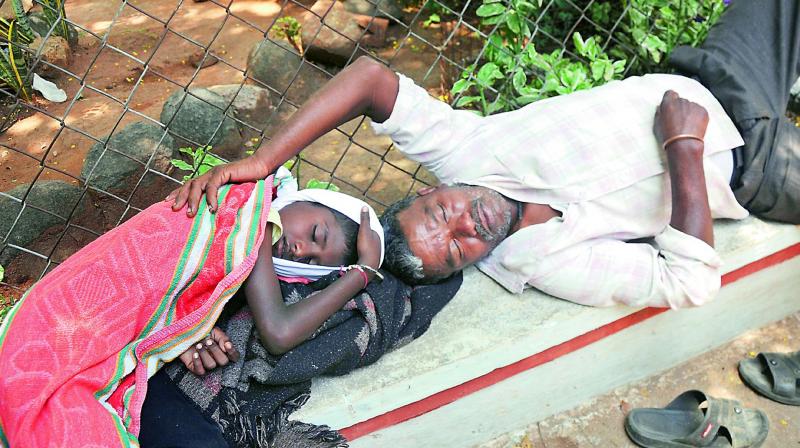Telangana continues to ‘burn’ with fevers

Hyderabad: Failure of the government, delayed monsoon and changing environment in the state are being blamed for the widespread viral fevers, dengue, malaria and chikengunya which continue to increase in the state.
The measures to control the mosquito population have been inadequate and whatever means were taken have also backfired due to the rains in September.
The mosquito cycle peaks in September and October. The fear is that if the proliferation continues, dengue and malaria cases will be on the rise.
The spraying of medicines, fogging and observing of complete drying of water containers, pots and pans have to be religiously followed to bring the female, day-time aedes aegypti mosquito under control.
On the other hand, municipalities across the state have been asked to take up the work of spraying and fogging effectively to bring the mosquito population under control.
Densely populated clusters in the city, districts and mandals have shown a high number of dengue and chikungunia cases while scattered habitats are registering malaria cases.
A senior government doctor, on condition of anonymity, explained, “The number of malaria cases have come down when compared to dengue in 2019. Dengue is at an all-time high in the state but the exact incidence is still not clear. The government is not going to take the numbers of private hospitals as they are showing as NS1-positive which is a random test.”
Private hospitals across the state are full and the maximum number of cases are those of viral fevers and seasonal diseases. Telangana Hospitals and Nursing Homes’ Association secretary Dr. Y. Ravinder Rao explained, “The data collected by us shows that fevers are widespread. Every 100, 50 and 25 bed hospital in the state is full and maximum cases are fevers. The first thing that doctors are told is to control the fevers. Controlling fevers will help as the viral load reduces and the chances of secondary diseases are reduced.”
There are 3,500 small hospitals and nursing homes in the state. While private hospitals are full, the government operated public health centres, area and district hospitals and central government clinics which also have more than they can handle.
Medical experts blame it to the failure of the government in controlling the day-time mosquito and the delayed rains.
Dr Narsinga Reddy, senior IMA member said, “The number of fevers are increasing. Families have at least two to three members affected and that means that hygiene and sanitation are compromised. There is a need for people to be aware to control the spread.”
In the hospitals it has been found that attendants who come with the patients are also falling sick and doctors are asking too
many people to not come as many more can get infected.
The spread of the virus from one human to another is easy due to the proximity and presence of very close clusters.

